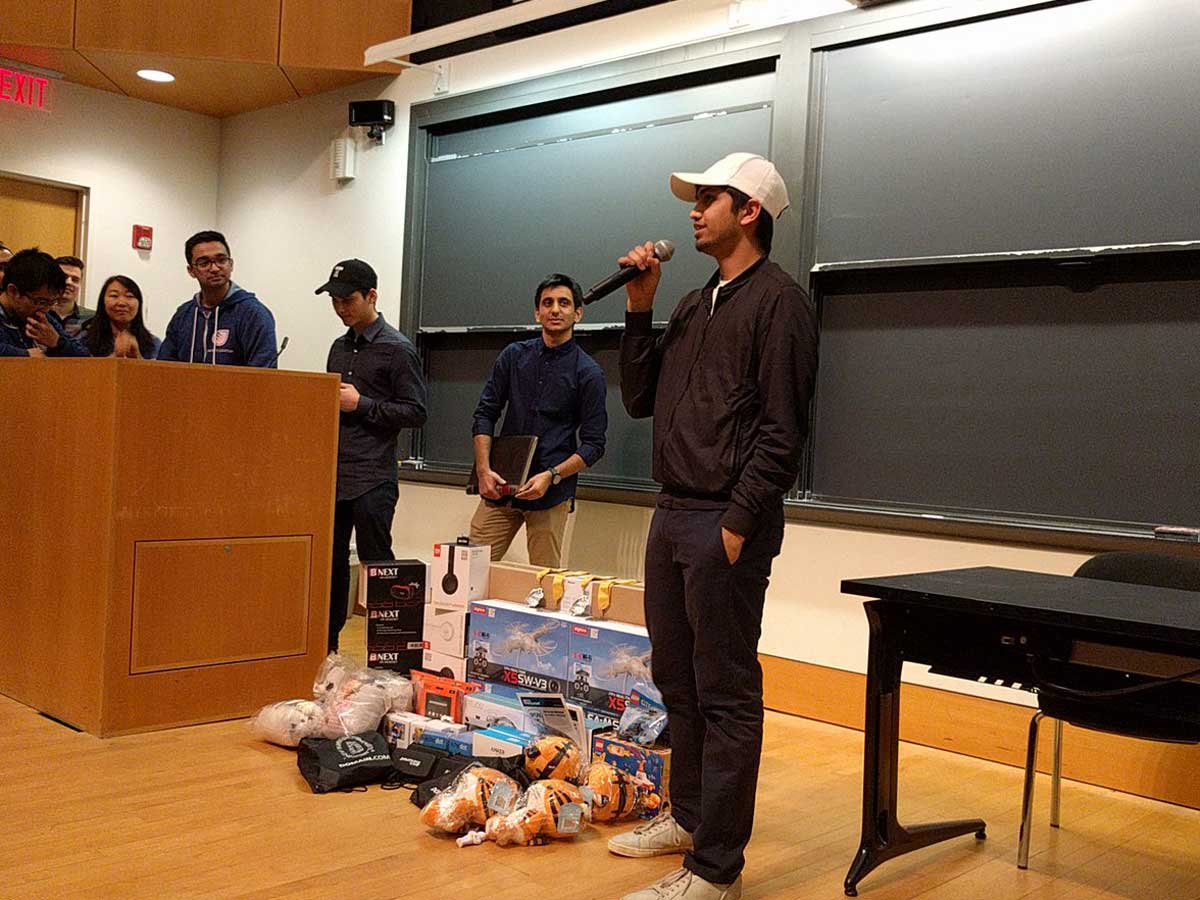The ins and outs of an Ivy League hackathon

Photo: Nehal Rao and the Tracktive team makes their pitch at HackPrinceton - Princeton University's hackathon.
What does it take to win an Ivy League hackathon? From March 31 to April 2, 500 students converged at Princeton University to show their new ideas and technologies, network with mentors, and create innovative software and hardware projects. Nehal Rao, Industrial Engineering student at Ryerson and intern at iBoost, won the $3,000 grand prize at HackPrinceton (external link, opens in new window) —the university's annual hackathon. We asked Rao about his experience and his winning technology, "Tracktive."
Tell us a little about the experience at HackPrinceton, and why you chose to attend.
I chose to attend because it is known to be a large-scale hackathon that produces high quality hacks every semester. It is hosted through Major League Hacking (MLH). It was a 36-hour hack that consisted of workshops, mentorship, good food, and stress relieving activities. Competitors were mainly from the Computer Science faculty from schools such as U of T, Cornell, MIT, Princeton, Waterloo, Rutgers, Brown, and many other schools from the East coast.
What were they looking for?
It wasn't a start-up based hack - it was more geared towards who could build the "coolest," functional, and most useful product. There was very little entrepreneurship emphasis because the students go there to just build without limitations to showcase their talent.
There was very stiff competition considering that many students were from Ivy League schools with years of programming experience, but that helped fuel our team to compete more aggressively. The students were very friendly and always looked for an opportunity to learn from each other. I ended up holding a mini workshop with some students to teach the basics of 3D printing and laser cutting.
I registered alone but I found two students who I worked with in the past at a Cisco hackathon from U of T: Lors Kushtov and Hussain Punjani. Our product is called Tracktive. We developed a virtual environment where users can DJ in mid air without actually touching any components. We achieved this experience utilizing a sensor called the Leap Motion, and the programming language, Python.
What challenges did you face?
The final two hours were very stressful because we ran into a major problem at a critical time. At the time of the expo we opened our laptop and the system had crashed, erasing everything on the laptop. Our program was backed up online but we were missing all the auxiliary components to run the program. It took us 30 minutes to reinstall everything. In that time we had to turn away preliminary judges multiple times that were in charge of determining whether we would move forward to the top 10 who get a chance to pitch to the main judges. When we did get the software working we started to attract a noticeable crowd with spectators, competitors, and judges. We had judges coming up to us who were not even assigned to us, because of sheer interest in our hack.
What was it like to win?
At the end of the expo the top 10 were immediately announced on Slack. After that we had a two-minute pitch privately to the main judges followed by a two-minute presentation during closing ceremony. After 45 minutes of anxiously watching the sponsor prizes being awarded to other teams during the closing ceremony, the director of Vitech went up to award the Best Overall Hack, and we had come to a point where we joked about winning. When he called out name it was a very surreal moment for the whole team.